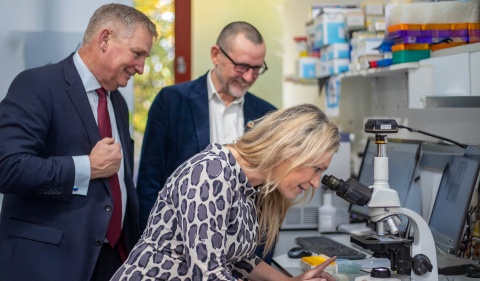Scotland’s circular economy contributed an estimated £7.11 billion to the national economy in 2021, accounting for 4.7 per cent of total gross value added (GVA) and supporting 81,447 jobs, according to new research commissioned by Zero Waste Scotland. The 4.7 per cent figure significantly exceeds the UK’s 2019 performance of 2.4 per cent of GVA, suggesting Scotland’s circular sectors are outperforming national benchmarks.
The State of the Circular Economy study, conducted by Eunomia and University College London using the European Circular Economy Monitoring Framework methodology, represents the first comprehensive quantification of circular economic activity in Scotland. The analysis found circular sectors employed 4.4 per cent of Scotland’s workforce, indicating significant economic activity beyond traditional perceptions of the circular economy as purely environmental policy.
These findings come following the legislative landmark of Circular Economy (Scotland) Act 2024, which establishes a framework requiring ministers to develop circular economy strategies and set statutory targets for waste reduction and resource efficiency.
Sector expansion
The economic findings align with growing evidence that circular economy principles can drive both environmental and economic benefits. Research by PricewaterhouseCoopers for the Circular Economy Task Force suggests circular business models already deliver economic growth across sectors, while WRAP analysis indicates UK circular industries have grown 3.1 percentage points faster than linear industries since 2020.
The Scottish Government’s recently published Circular Economy and Waste Route Map to 2030 identifies 11 priority actions for accelerating the transition. Zero Waste Scotland’s Corporate Plan for 2024-2030 targets reducing raw material extraction by one-third by 2030, supporting the route map’s objectives around responsible consumption and production.
The State of the Circular Economy report examined sectors including repair services, recycling, remanufacturing and rental activities. It found that repair of consumer personal and household items contributed 2,900 jobs and £177.6 million in GVA, while repair of fabricated metal products, machinery and equipment generated 9,910 jobs and £744.44 million in GVA. Retail sale of reused second-hand goods in stores contributed 80 jobs and £1.86 million in GVA.
In determining the overall impact, the broader analysis covered by the report encompassed 127 circular economy activities across waste collection and treatment, materials recovery, sewerage services, rental and leasing operations, and construction maintenance activities, demonstrating the diversity of sectors contributing to the overall economic impact.
Iain Gulland, Chief Executive of Zero Waste Scotland, said: “In Scotland, businesses which are embracing circular business models are now a significant and thriving part of our economic landscape. This is an important finding as we’re at a pivotal point where economic and environmental agendas are converging. Evidence like this gives us an unrivalled opportunity to evolve an economy that works for people, planet, and prosperity.”
Gillian Martin, Climate Action Secretary, commented: “This report shines a light on just how important green industries are to Scotland’s economy. We are already seeing businesses creating jobs by turning what we might otherwise throw away into valuable new products and services across Scotland. This research emphasises that redesigning, repairing, reusing and recycling goods and materials not only has a huge role to play in Scotland’s response to tackling the climate crisis but will continue to have a significant impact on our economic goals.”
The study used international methodology for comparability with EU circular economy monitoring, taking a conservative approach that focused on clearly defined sectors. Based on 2021 data, the research suggests scope for further growth as circular business models expand into emerging areas including digital platforms and advanced technologies.
